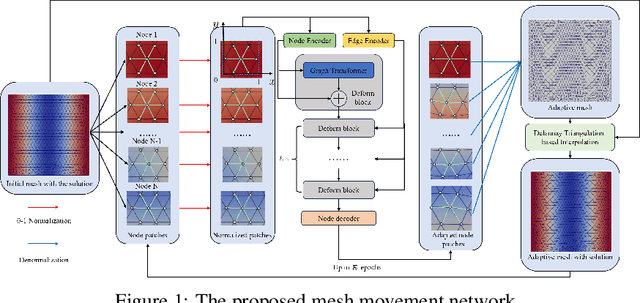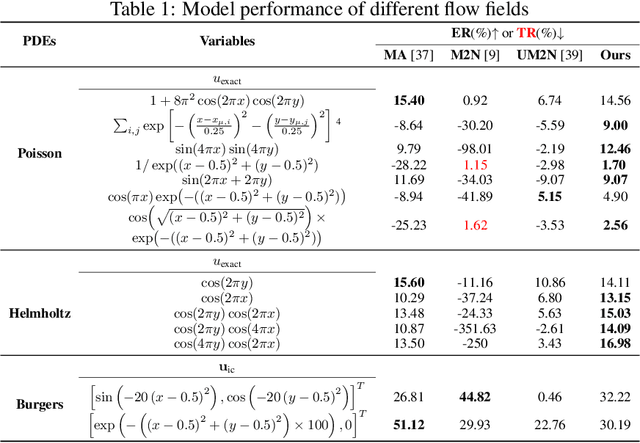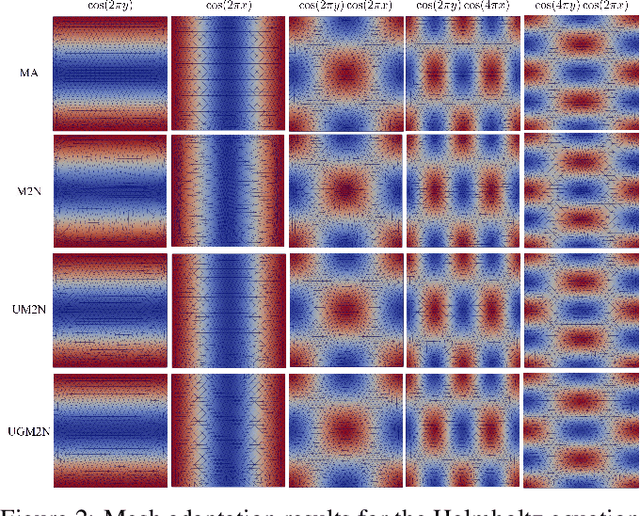Qinglin Wang
LLM4Fluid: Large Language Models as Generalizable Neural Solvers for Fluid Dynamics
Jan 29, 2026Abstract:Deep learning has emerged as a promising paradigm for spatio-temporal modeling of fluid dynamics. However, existing approaches often suffer from limited generalization to unseen flow conditions and typically require retraining when applied to new scenarios. In this paper, we present LLM4Fluid, a spatio-temporal prediction framework that leverages Large Language Models (LLMs) as generalizable neural solvers for fluid dynamics. The framework first compresses high-dimensional flow fields into a compact latent space via reduced-order modeling enhanced with a physics-informed disentanglement mechanism, effectively mitigating spatial feature entanglement while preserving essential flow structures. A pretrained LLM then serves as a temporal processor, autoregressively predicting the dynamics of physical sequences with time series prompts. To bridge the modality gap between prompts and physical sequences, which can otherwise degrade prediction accuracy, we propose a dedicated modality alignment strategy that resolves representational mismatch and stabilizes long-term prediction. Extensive experiments across diverse flow scenarios demonstrate that LLM4Fluid functions as a robust and generalizable neural solver without retraining, achieving state-of-the-art accuracy while exhibiting powerful zero-shot and in-context learning capabilities. Code and datasets are publicly available at https://github.com/qisongxiao/LLM4Fluid.
MELDAE: A Framework for Micro-Expression Spotting, Detection, and Automatic Evaluation in In-the-Wild Conversational Scenes
Oct 26, 2025Abstract:Accurately analyzing spontaneous, unconscious micro-expressions is crucial for revealing true human emotions, but this task remains challenging in wild scenarios, such as natural conversation. Existing research largely relies on datasets from controlled laboratory environments, and their performance degrades dramatically in the real world. To address this issue, we propose three contributions: the first micro-expression dataset focused on conversational-in-the-wild scenarios; an end-to-end localization and detection framework, MELDAE; and a novel boundary-aware loss function that improves temporal accuracy by penalizing onset and offset errors. Extensive experiments demonstrate that our framework achieves state-of-the-art results on the WDMD dataset, improving the key F1_{DR} localization metric by 17.72% over the strongest baseline, while also demonstrating excellent generalization capabilities on existing benchmarks.
UGM2N: An Unsupervised and Generalizable Mesh Movement Network via M-Uniform Loss
Aug 12, 2025



Abstract:Partial differential equations (PDEs) form the mathematical foundation for modeling physical systems in science and engineering, where numerical solutions demand rigorous accuracy-efficiency tradeoffs. Mesh movement techniques address this challenge by dynamically relocating mesh nodes to rapidly-varying regions, enhancing both simulation accuracy and computational efficiency. However, traditional approaches suffer from high computational complexity and geometric inflexibility, limiting their applicability, and existing supervised learning-based approaches face challenges in zero-shot generalization across diverse PDEs and mesh topologies.In this paper, we present an Unsupervised and Generalizable Mesh Movement Network (UGM2N). We first introduce unsupervised mesh adaptation through localized geometric feature learning, eliminating the dependency on pre-adapted meshes. We then develop a physics-constrained loss function, M-Uniform loss, that enforces mesh equidistribution at the nodal level.Experimental results demonstrate that the proposed network exhibits equation-agnostic generalization and geometric independence in efficient mesh adaptation. It demonstrates consistent superiority over existing methods, including robust performance across diverse PDEs and mesh geometries, scalability to multi-scale resolutions and guaranteed error reduction without mesh tangling.
AI PsyRoom: Artificial Intelligence Platform for Segmented Yearning and Reactive Outcome Optimization Method
Jun 07, 2025Abstract:Psychological counseling faces huge challenges due to the growing demand for mental health services and the shortage of trained professionals. Large language models (LLMs) have shown potential to assist psychological counseling, especially in empathy and emotional support. However, existing models lack a deep understanding of emotions and are unable to generate personalized treatment plans based on fine-grained emotions. To address these shortcomings, we present AI PsyRoom, a multi-agent simulation framework designed to enhance psychological counseling by generating empathetic and emotionally nuanced conversations. By leveraging fine-grained emotion classification and a multi-agent framework, we construct a multi-agent PsyRoom A for dialogue reconstruction, generating a high-quality dialogue dataset EmoPsy, which contains 35 sub-emotions, 423 specific emotion scenarios, and 12,350 dialogues. We also propose PsyRoom B for generating personalized treatment plans. Quantitative evaluations demonstrate that AI PsyRoom significantly outperforms state-of-the-art methods, achieving 18% improvement in problem orientation, 23% in expression, 24% in Empathy, and 16% in interactive communication quality. The datasets and models are publicly available, providing a foundation for advancing AI-assisted psychological counseling research.
 Add to Chrome
Add to Chrome Add to Firefox
Add to Firefox Add to Edge
Add to Edge